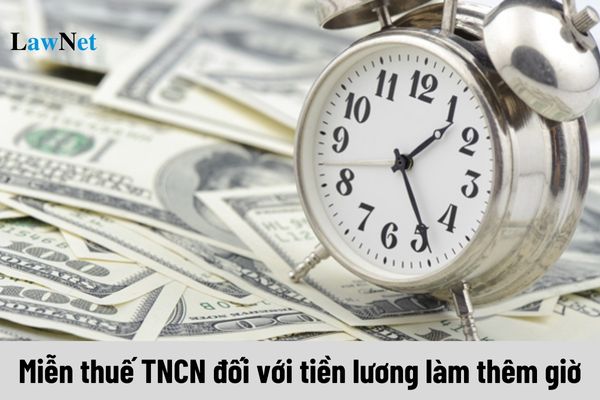Is there a tax exemption for overtime pay in Vietnam?
How to calculate overtime pay in Vietnam?
Based on Article 98 of the Labor Code 2019 which provides as follows:
Overtime Pay, Night Shift Pay
1. An employee who works overtime shall be paid according to the wage unit price or actual salary for the job as follows:
a) On normal days, at least 150%;
b) On weekly days off, at least 200%;
c) On public holidays, Tet holidays, and paid leave days, at least 300% not including the salary of the holidays, Tet holidays, and paid leave days for employees paid on a daily basis.
2. An employee who works during the night shall be paid at least 30% higher than the wage paid for working during the day on a normal working day.
3. An employee who works overtime at night shall be paid, in addition to the pay stipulated in clauses 1 and 2 of this Article, an additional 20% of the wage unit price or actual salary for daytime work on a normal working day, weekly day off, or public holiday, Tet holiday.
4. The Government of Vietnam shall provide detailed regulations on this Article.
According to the above regulation, overtime pay is calculated as follows:
Overtime pay = (Actual hourly wage for the job on a normal working day) x (At least 150% or 200% or 300%) x (Number of overtime hours)

Is there a tax exemption for overtime pay in Vietnam? (Image from Internet)
Is there a tax exemption for overtime pay in Vietnam?
Based on point i, clause 1, Article 3 of Circular 111/2013/TT-BTC, it is stipulated as follows:
Tax Exemption Income
- Based on the provisions of Article 4 of the Personal Income Tax Law, Article 4 of Decree No. 65/2013/ND-CP, tax exemption income includes:
...
i) Income from the portion of wages and remunerations for night work and overtime that is higher than the wages and remunerations paid for working during the day or regular working hours as stipulated by the Labor Code. Specifically:
i.1) The portion of wages and remuneration paid higher due to night work and overtime is tax-exempt based on the actual wages and remuneration paid for night work and overtime minus (-) the wages and remuneration calculated according to normal working days.
....
i.2) Organizations and individuals that pay income must make a detailed statement reflecting the night and overtime work periods, the additional wages paid for night work and overtime paid to employees. This statement will be kept at the income-paying unit and presented upon request by the tax authority.
...
overtime pay will be exempt from personal income tax but not the entire amount; only the portion of income received higher than the standard day work wages as per the Labor Code 2019, specifically:
- The portion of wages and remuneration paid higher for night work and overtime is tax-exempt based on actual wages and remuneration paid for night work and overtime minus the wages and remuneration calculated for normal working days.
Example: Mr. A has a wage rate according to normal working days as stipulated by the Labor Code at 40,000 VND/hour.
- In the case of working overtime on normal days, he is paid 60,000 VND/hour. The tax-exempt income is:
60,000 VND/hour – 40,000 VND/hour = 20,000 VND/hour
- In the case of working overtime on rest days or holidays, he is paid 80,000 VND/hour. The tax-exempt income is:
80,000 VND/hour – 40,000 VND/hour = 40,000 VND/hour
Note: When businesses or individuals pay income to employees, they must prepare a detailed statement specifying: Overtime periods, additional wages for overtime. This statement must be kept internally at the business and must be presented upon request by the tax authority.
What types of employment income are taxable in Vietnam?
According to clause 2, Article 3 of the Personal Income Tax Law 2007, amended by clause 1, Article 1 of the Amended Personal Income Tax Law 2012, taxable employment income includes:
- Wages and salaries and allowances of wage and salary nature;
- Allowances and subsidies, excluding:
+ Allowances and subsidies under the law on preferential treatment for people with meritorious services;
+ Defense and security allowances;
+ Toxic or hazardous allowances for industries, occupations, or jobs at toxic or hazardous workplaces;
+ Attraction allowances, regional allowances according to the law; support allowances for sudden difficulties, labor accident, occupational disease allowances, one-time allowances for childbirth or adoption, allowances for reduced working capacity, one-time pension allowance, monthly survivor allowance and other subsidies under the social insurance law;
+ Severance allowances, job loss allowances according to the provisions of the Labor Code;
+ Social welfare benefits and other allowances and subsidies that are not of wage, salary nature as stipulated by the Government of Vietnam.

